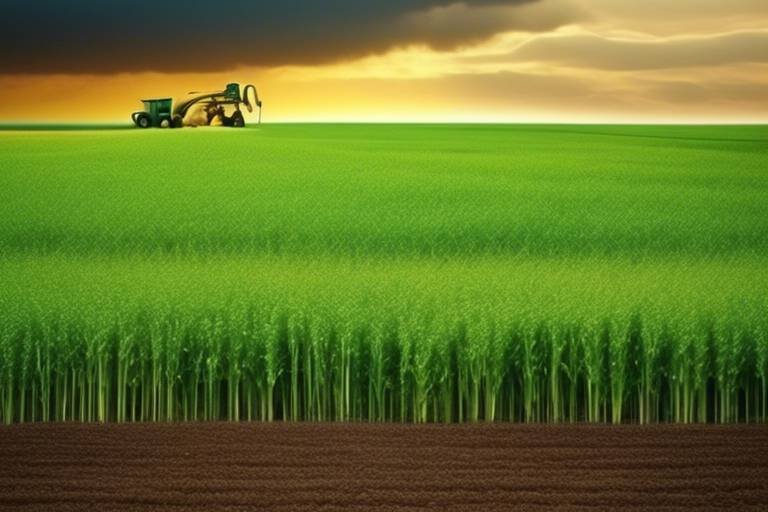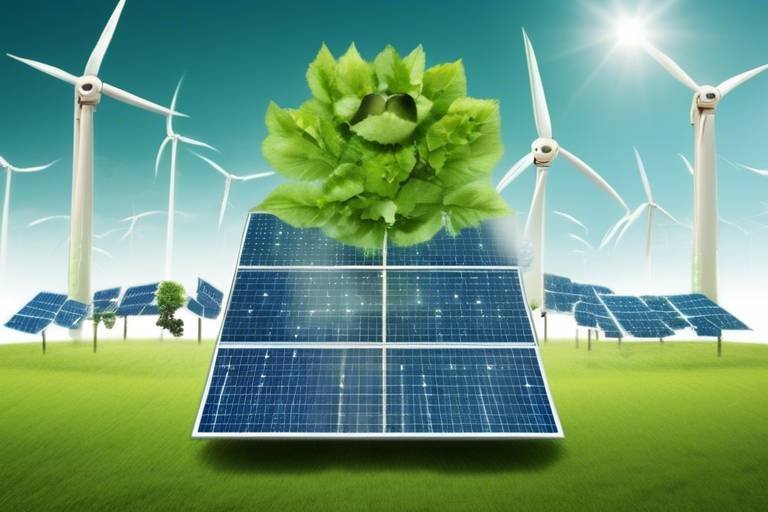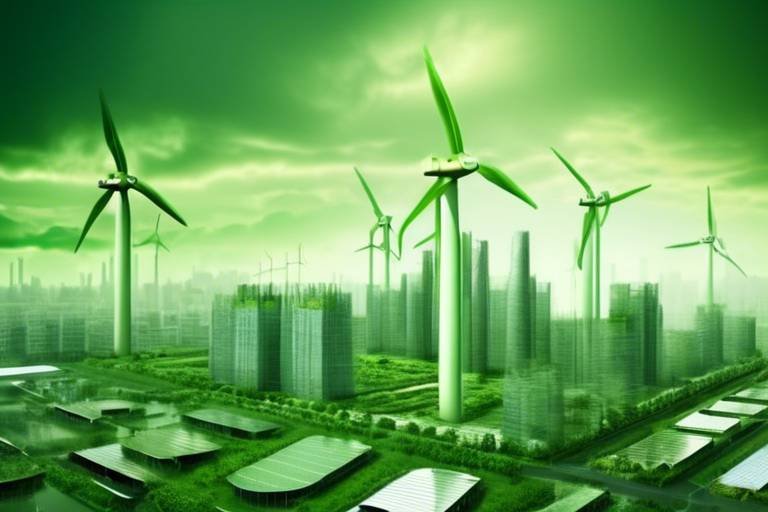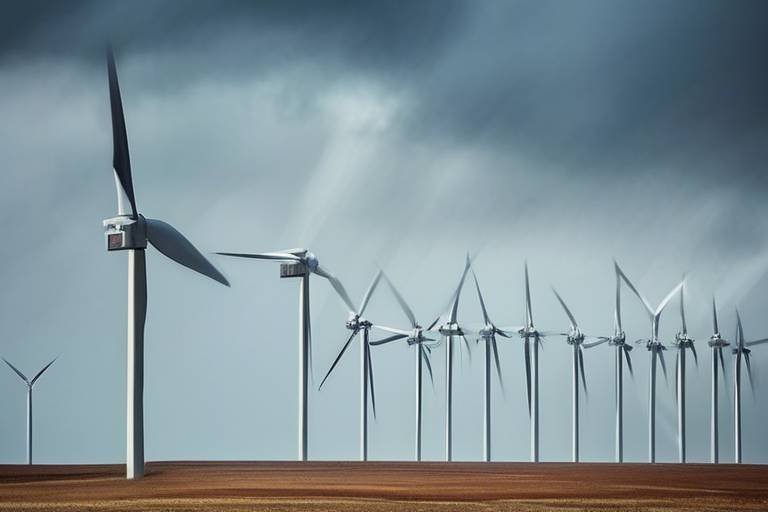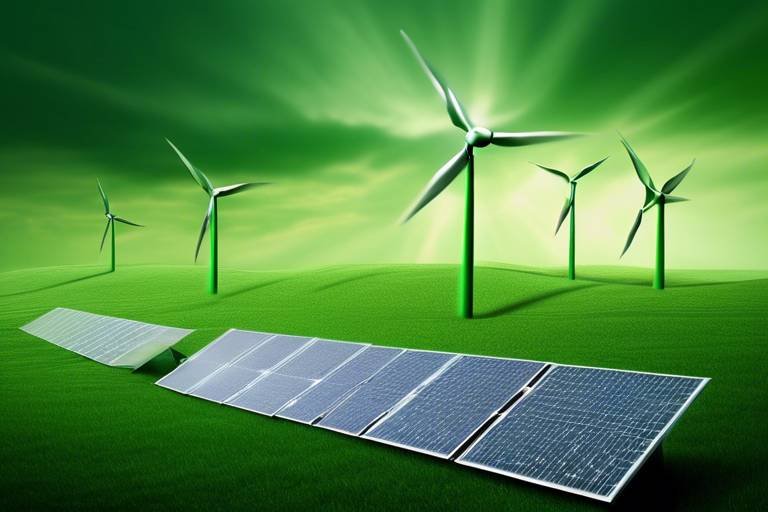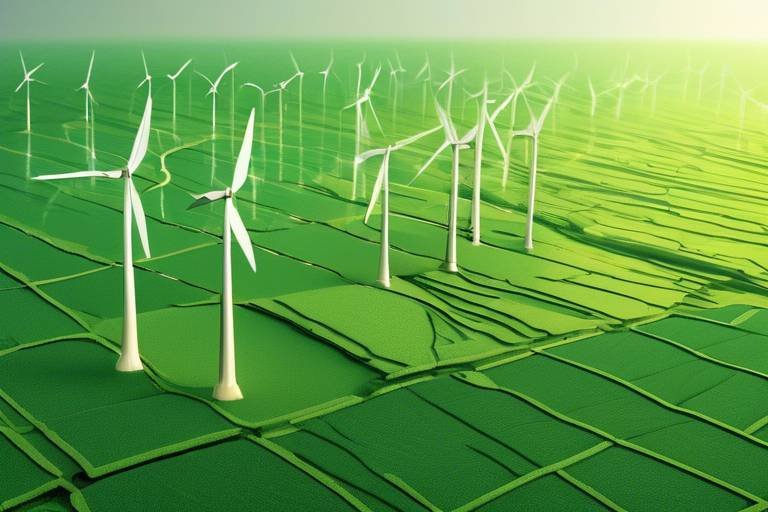The Truth about Biofuels - Benefits and Challenges
In a world grappling with climate change and the pressing need for sustainable energy solutions, biofuels have emerged as a beacon of hope. Derived from organic materials, these renewable energy sources offer a promising alternative to fossil fuels, which have long been the backbone of our energy consumption. But what exactly are biofuels, and why are they garnering so much attention? This article delves into the complexities surrounding biofuels, highlighting their myriad advantages and the challenges they face in our quest for a greener planet.
Biofuels are primarily classified into two categories: first-generation and second-generation biofuels. First-generation biofuels are produced from food crops like corn and sugarcane, while second-generation biofuels are derived from non-food materials, such as agricultural waste and dedicated energy crops. The production process for biofuels typically involves fermentation or chemical conversion, which transforms organic materials into usable energy. This transformation is not just a technical marvel; it represents a shift in how we think about energy production and consumption.
One of the most compelling arguments for biofuels is their potential to significantly reduce greenhouse gas emissions. Unlike fossil fuels, which release carbon stored for millions of years, biofuels are part of a closed carbon cycle. When plants grow, they absorb CO2 from the atmosphere, and when biofuels are burned, they release it back, creating a balance that can lead to a lower overall carbon footprint. This is particularly crucial in our fight against climate change, where every ton of CO2 saved can make a difference.
The potential of biofuels to lower carbon emissions compared to traditional fuels is significant. Studies have shown that using biofuels can reduce carbon emissions by up to 80% when compared to gasoline. This reduction is not just theoretical; it has real-world implications for air quality and public health. By transitioning to biofuels, we can decrease pollutants that contribute to respiratory issues and other health problems, thereby enhancing the quality of life for communities worldwide.
However, to truly understand the environmental impact of biofuels, we must conduct a lifecycle analysis. This involves examining the effects of biofuel production from start to finish, including cultivation, processing, and consumption. It’s essential to consider all stages in evaluating sustainability. For instance, while biofuels can reduce emissions, the energy used in farming and processing must also be accounted for. A comprehensive lifecycle analysis ensures that we are not just trading one problem for another.
Utilizing sustainable agricultural methods for biofuel production can enhance environmental benefits. Practices such as crop rotation, organic farming, and agroforestry not only improve soil health but also increase biodiversity. By prioritizing sustainable methods, we can produce biofuels that not only serve as an energy source but also contribute positively to ecosystem health. This holistic approach is essential for ensuring that biofuel production does not come at the expense of our planet.
Beyond environmental benefits, biofuels can also stimulate local economies. By creating jobs in farming, processing, and distribution, biofuels can promote energy independence and reduce reliance on imported fossil fuels. This is particularly important for rural areas where job opportunities may be limited. Investing in biofuel production can lead to a ripple effect, boosting local businesses and fostering community development.
Despite their benefits, biofuels face significant challenges that impact their viability. Issues such as land use, food competition, and technological barriers must be addressed to ensure that biofuels can play a meaningful role in our energy future. The path to widespread biofuel adoption is fraught with complexities that require careful consideration and innovative solutions.
One of the most pressing issues is the competition for land between food crops and biofuel crops. As we prioritize biofuel production, ethical concerns arise about food security. The debate often centers around whether we should be using arable land for fuel instead of food. This dilemma highlights the need for advanced agricultural practices that can yield both food and biofuels without compromising one for the other.
Advancements in biofuel technology are crucial for efficiency and scalability. Current technological challenges include improving the conversion processes and finding cost-effective methods for producing second-generation biofuels. Innovations in enzymatic processes and genetic engineering of plants could pave the way for more sustainable and efficient biofuel production methods. Without these advancements, the growth of the biofuel industry may be stunted.
- What are biofuels? Biofuels are renewable energy sources derived from organic materials, offering an alternative to fossil fuels.
- How do biofuels reduce greenhouse gas emissions? Biofuels can lower emissions by utilizing a closed carbon cycle, where CO2 absorbed by plants is released back into the atmosphere when burned.
- What are the challenges facing biofuels? Key challenges include competition for land with food crops, technological limitations, and the need for sustainable farming practices.
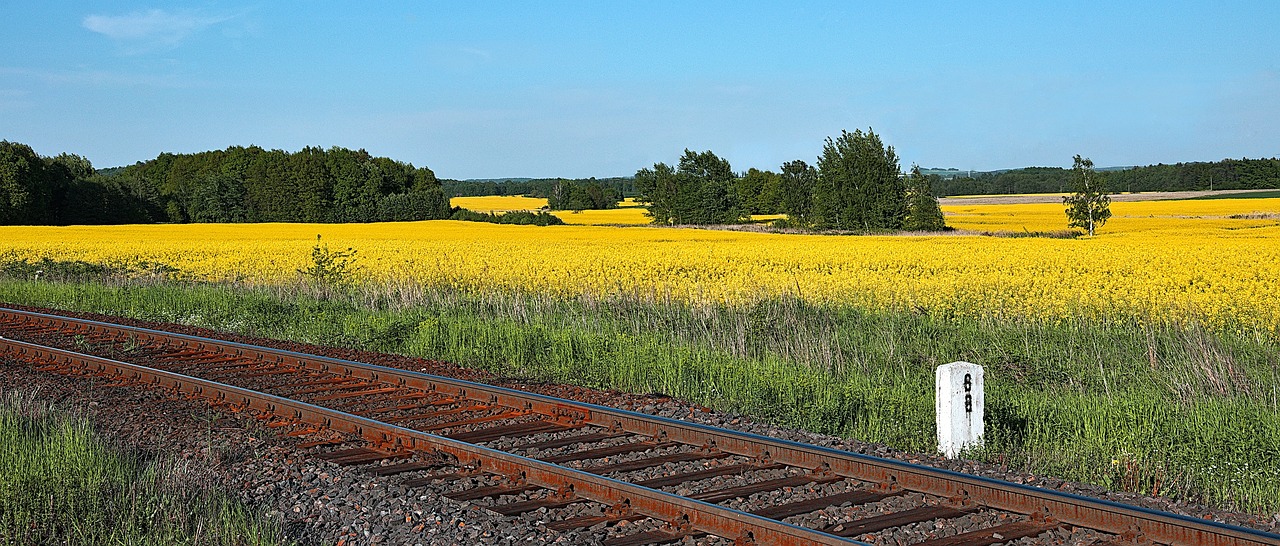
Understanding Biofuels
Biofuels are a fascinating and essential part of the renewable energy landscape. Derived from organic materials, they serve as a viable alternative to traditional fossil fuels, which have long dominated our energy supply. But what exactly are biofuels, and how are they produced? Let's dive into the world of biofuels and uncover their different types, production processes, and the potential they hold for a sustainable future.
Generally, biofuels can be classified into two main categories: first-generation and second-generation biofuels. First-generation biofuels are made from food crops such as corn, sugarcane, and vegetable oils. These biofuels are typically produced through well-established processes, like fermentation and transesterification. However, they raise concerns about food security and land use, as they compete directly with food production.
On the other hand, second-generation biofuels are derived from non-food biomass, including agricultural waste, wood chips, and even algae. These sources are less controversial as they do not interfere with food supplies. The production of second-generation biofuels often involves more complex technologies, such as gasification and enzymatic hydrolysis, which convert the biomass into usable fuels. This shift toward non-food sources is crucial for addressing some of the ethical dilemmas associated with first-generation biofuels.
In recent years, there has been a growing interest in third-generation biofuels, which primarily focus on algae. Algae have a remarkable ability to produce oils that can be converted into biodiesel, and they can grow in environments unsuitable for traditional crops. This makes them a promising candidate for sustainable biofuel production. The potential of algae is so vast that some researchers are even exploring the use of genetically modified strains to enhance oil yield.
To better understand the complexities of biofuel production, it's essential to consider the various stages involved:
| Stage | Description |
|---|---|
| Feedstock Collection | Gathering raw materials, which can be food crops, waste products, or algae. |
| Processing | Converting feedstock into biofuels through fermentation, transesterification, or gasification. |
| Distribution | Transporting biofuels to consumers, which may involve blending with conventional fuels. |
| Consumption | Using biofuels in vehicles, machinery, and power plants. |
Each of these stages presents unique challenges and opportunities for innovation. As we strive to move away from fossil fuels, understanding the intricacies of biofuel production is vital. By harnessing the power of biofuels, we can reduce our carbon footprint, promote energy independence, and foster a more sustainable future.
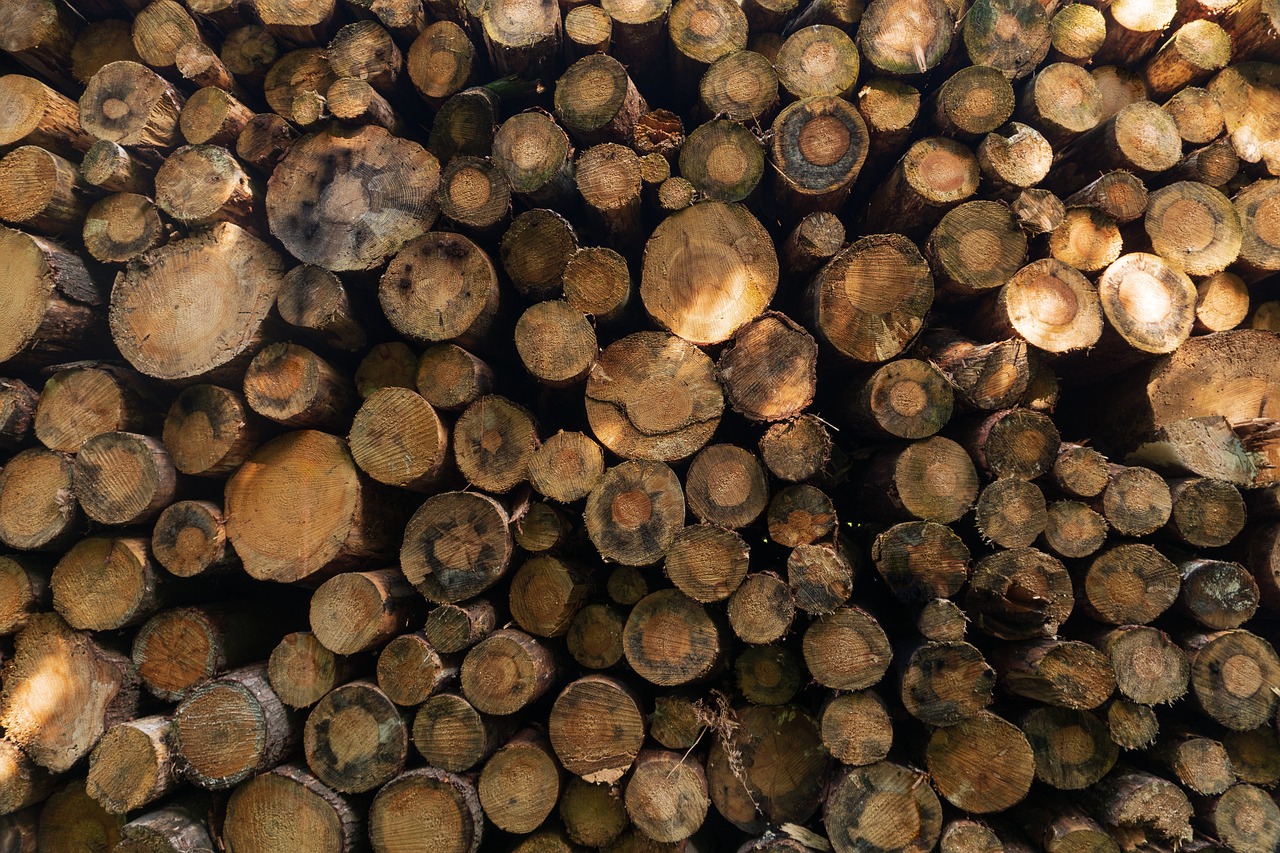
Environmental Benefits
When we think about the future of our planet, the term biofuels often comes up as a beacon of hope. Derived from organic materials, these fuels present a compelling alternative to traditional fossil fuels, which have been the primary energy source for decades. Not only do biofuels promise a reduction in greenhouse gas emissions, but they also offer a chance to improve air quality and mitigate the effects of climate change. Imagine a world where the air is cleaner, the carbon footprint is smaller, and our reliance on depleting natural resources is diminished—this is the vision that biofuels help to realize.
One of the most significant environmental advantages of biofuels is their potential to reduce greenhouse gas emissions. Unlike fossil fuels, which release harmful carbon dioxide when burned, biofuels can be produced and consumed in a way that is more sustainable. For example, when plants grow, they absorb carbon dioxide from the atmosphere. When these plants are converted into biofuels, the carbon dioxide released upon combustion is roughly equivalent to what was absorbed during their growth, creating a closed carbon cycle. This natural process can lead to a noticeable decrease in overall emissions.
Furthermore, biofuels contribute positively to air quality. Traditional fossil fuels emit a range of pollutants, including sulfur dioxide and particulate matter, which can lead to respiratory issues and other health problems. In contrast, biofuels tend to produce fewer harmful emissions. For instance, biodiesel—a popular type of biofuel—can reduce levels of particulate matter by up to 50% compared to conventional diesel. This shift not only benefits the environment but also enhances public health, making our cities cleaner and more livable.
To truly understand the environmental impact of biofuels, we must consider a lifecycle analysis. This approach examines the entire journey of biofuels, from production through consumption, ensuring we account for every stage of their life. While the production of biofuels can have some environmental costs—such as land use and water consumption—when compared to the lifecycle of fossil fuels, biofuels often come out on top. For example, a recent study indicated that the overall greenhouse gas emissions from biofuels can be up to 80% lower than those from fossil fuels when considering their entire lifecycle.
Moreover, the integration of sustainable farming practices in biofuel production can amplify these environmental benefits. By utilizing methods that enhance soil health, promote biodiversity, and reduce chemical inputs, farmers can grow biofuel crops in a way that supports ecosystem health. Practices such as crop rotation, cover cropping, and reduced tillage not only improve the yield of biofuel crops but also contribute to the overall sustainability of the agricultural landscape. This dual benefit of producing energy while preserving natural resources is a win-win scenario.
In conclusion, the environmental benefits of biofuels are clear. They offer a pathway to lower greenhouse gas emissions, improve air quality, and promote sustainable agricultural practices. However, it’s essential to approach biofuel production thoughtfully, ensuring that we maximize these benefits while addressing any potential challenges. As we move forward, the role of biofuels in our energy landscape will likely become increasingly significant, paving the way for a greener future.
- What are biofuels made from? Biofuels are derived from organic materials such as plants, agricultural waste, and even algae.
- How do biofuels reduce greenhouse gas emissions? Biofuels can help create a closed carbon cycle, absorbing carbon dioxide during plant growth and releasing it when burned.
- Are biofuels better for air quality than fossil fuels? Yes, biofuels typically produce fewer harmful pollutants, leading to improved air quality and public health.
- What is lifecycle analysis in the context of biofuels? Lifecycle analysis assesses the environmental impact of biofuels from production to consumption, providing a comprehensive view of their sustainability.
- How can sustainable farming practices enhance biofuel production? Sustainable practices improve soil health and biodiversity, leading to higher yields and less environmental degradation.
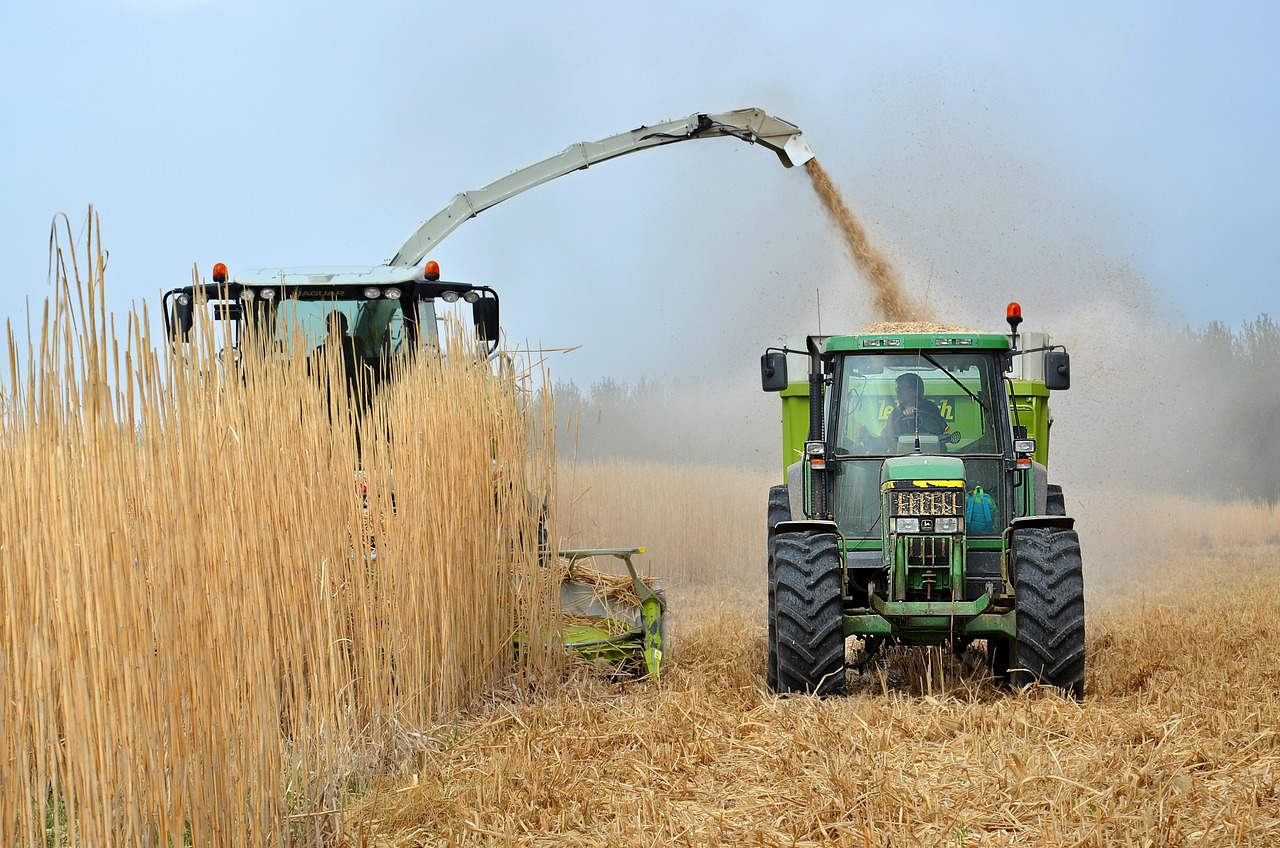
Carbon Footprint Reduction
The potential of biofuels to lower carbon emissions compared to traditional fossil fuels is nothing short of remarkable. Imagine a world where our vehicles, planes, and machinery run on energy derived from the very crops we cultivate. Biofuels, made from organic materials such as corn, sugarcane, and even waste products, present a viable alternative that can significantly reduce our carbon footprint. But how exactly do they achieve this?
At the heart of the carbon footprint reduction is the concept of carbon neutrality. When biofuels are produced and consumed, the carbon dioxide released during combustion is approximately equal to the carbon dioxide absorbed by the plants during their growth. This creates a cycle that can potentially keep atmospheric carbon levels stable, unlike fossil fuels, which release carbon that has been stored underground for millions of years. This cycle is not just a theoretical concept; numerous studies support the effectiveness of biofuels in mitigating climate change.
One of the most compelling aspects of biofuels is their ability to significantly lower greenhouse gas emissions. According to research, biofuels can reduce emissions by up to 80% compared to conventional gasoline. This reduction is vital in the fight against climate change, where every percentage point matters. The table below illustrates the comparative emissions of biofuels versus fossil fuels:
| Fuel Type | Carbon Emissions (gCO2/km) | Reduction Percentage |
|---|---|---|
| Gasoline | 250 | - |
| Biodiesel | 150 | 40% |
| Ethanol | 100 | 60% |
| Advanced Biofuels | 50 | 80% |
While the numbers are impressive, the real beauty of biofuels lies in their versatility. They can be blended with traditional fuels or used in their pure form, making them a flexible option for various applications. This adaptability allows consumers and industries to gradually transition away from fossil fuels without needing to overhaul existing infrastructure. It's like upgrading your smartphone without needing to buy a new charger!
However, it’s essential to consider the entire lifecycle of biofuels to truly understand their environmental impact. This includes everything from the cultivation of raw materials to the processing and transportation of the final product. A lifecycle analysis reveals that while biofuels offer significant benefits, the production methods and agricultural practices can also contribute to emissions if not managed sustainably. This is where sustainable farming practices come into play, ensuring that biofuel production does not come at the expense of the environment.
In conclusion, the promise of biofuels as a means to reduce our carbon footprint is backed by substantial evidence and innovative technology. As we continue to explore and develop these renewable energy sources, it becomes increasingly clear that biofuels could play a crucial role in our transition to a more sustainable future. By making conscious choices about the fuels we use, we can all contribute to a healthier planet.

Lifecycle Analysis
When we talk about biofuels, it’s crucial to consider their entire lifecycle—from the moment a seed is planted to when the fuel powers your car. This holistic approach allows us to understand the true environmental impact of biofuels and their sustainability. It’s like looking at the full picture of a painting rather than just focusing on a single brushstroke. By evaluating each stage, we can identify both the benefits and the challenges that come with biofuel production.
First off, let’s break down the lifecycle into several key phases:
- Feedstock Production: This is where it all begins. Crops such as corn, sugarcane, or even waste materials are grown or collected. The methods used in this phase can significantly affect the overall sustainability of the biofuel.
- Processing: Once harvested, the feedstock undergoes various processes to convert it into biofuel. This stage can involve fermentation, transesterification, or other chemical processes, each with its own energy and resource requirements.
- Distribution: After processing, the biofuel needs to be transported to where it will be used. This phase can contribute to greenhouse gas emissions, depending on the distance and method of transportation.
- Consumption: Finally, the biofuel is used in vehicles or for energy generation. Here, we can measure its effectiveness in reducing emissions compared to traditional fossil fuels.
Now, why is this lifecycle analysis so important? Well, it helps us realize that while biofuels can be a cleaner alternative to fossil fuels, they are not a one-size-fits-all solution. For instance, the environmental benefits of biofuels can be overshadowed by negative impacts if the feedstock is grown unsustainably. This is where practices like sustainable farming come into play, ensuring that the land used for biofuel crops doesn’t compromise food production or biodiversity.
Moreover, a lifecycle analysis can uncover surprising insights. Did you know that in some cases, the carbon emissions produced during the processing and transportation phases can negate the benefits gained from using biofuels? This is why understanding the entire lifecycle is essential in making informed decisions about energy sources. It’s not just about how much fuel we can produce, but how we produce it and what that means for our planet.
In summary, a thorough lifecycle analysis of biofuels reveals a complex web of interactions and impacts. By considering each phase, we can better gauge the sustainability of biofuels and strive for improvements that maximize their benefits while minimizing their drawbacks. As we continue to innovate and refine biofuel production methods, this analysis will be a guiding light in our quest for cleaner energy solutions.
- What are biofuels made from? Biofuels are typically made from organic materials such as plants, agricultural waste, or even algae.
- Are biofuels environmentally friendly? While biofuels can reduce greenhouse gas emissions, their environmental impact depends on how they are produced and processed.
- Can biofuels compete with fossil fuels? Biofuels have the potential to compete with fossil fuels, but factors like production costs and technological advancements play a significant role.
- What is the future of biofuels? The future of biofuels looks promising, especially with ongoing research aimed at improving efficiency and sustainability.
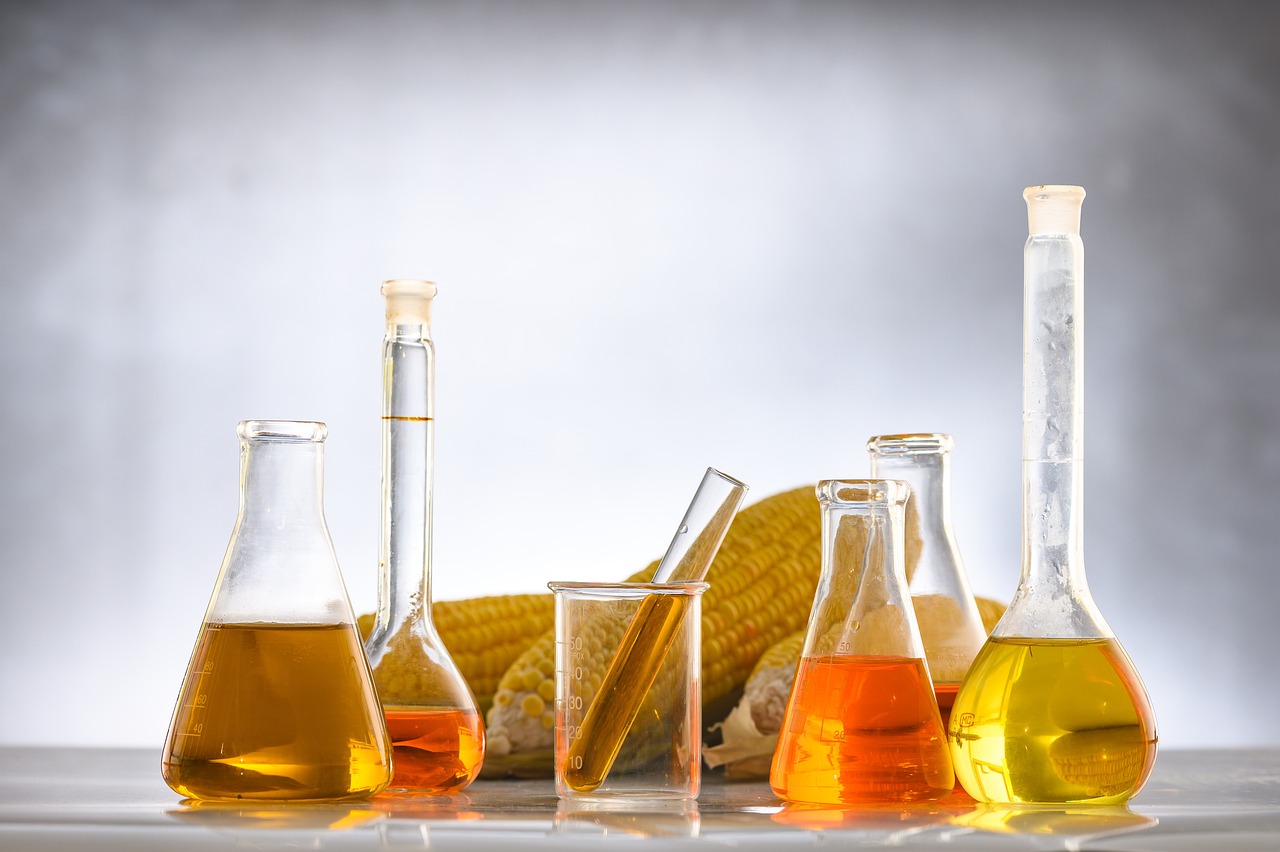
Sustainable Farming Practices
When we talk about , we’re diving into a world where agriculture and ecology go hand in hand. Imagine a system where farmers grow crops not just for profit, but with the planet’s health in mind. This isn’t just a dream; it’s becoming a reality! Sustainable farming methods can significantly enhance the production of biofuels while also supporting the environment. These practices include crop rotation, agroforestry, and organic farming, which not only boost biodiversity but also improve soil health.
Let’s break it down! Crop rotation, for instance, is like giving the soil a break. By alternating the types of crops grown in a particular area, farmers can prevent soil depletion and reduce the need for chemical fertilizers. It’s a win-win! Agroforestry, on the other hand, involves integrating trees and shrubs into agricultural landscapes. This practice not only provides shade and shelter for crops but also helps in carbon sequestration, making it a powerful ally in the fight against climate change.
Additionally, organic farming practices emphasize the use of natural fertilizers and pest control methods, which can lead to healthier crops and a more resilient ecosystem. By avoiding synthetic chemicals, organic farmers contribute to cleaner water systems and healthier soil. The benefits are clear: healthier crops lead to better biofuel production, which in turn supports the renewable energy sector.
Moreover, sustainable farming practices can also enhance social equity within communities. By promoting local food systems and engaging in fair trade practices, farmers can create jobs and stimulate local economies. This not only helps in reducing poverty but also ensures that communities are more resilient to economic shocks. Just think about it: when local farmers thrive, everyone benefits!
In conclusion, adopting sustainable farming practices is not just beneficial for biofuel production; it’s essential for the health of our planet and future generations. By investing in these methods, we can create a more sustainable and equitable food system that supports both people and the environment. So, the next time you think about biofuels, remember that the journey starts in the fields where sustainable practices are sown!
- What are biofuels? Biofuels are renewable energy sources derived from organic materials, such as plants and animal waste.
- How do sustainable farming practices impact biofuel production? They enhance soil health, reduce chemical use, and promote biodiversity, all of which contribute to more efficient biofuel production.
- Can biofuels help combat climate change? Yes, by reducing greenhouse gas emissions compared to fossil fuels, biofuels can play a significant role in mitigating climate change.
- What is the food vs. fuel debate? This debate centers around the competition for land between food crops and biofuel crops, raising concerns about food security.

Economic Advantages
Biofuels are not just a buzzword in the renewable energy conversation; they represent a transformative shift in how we think about energy production and consumption. One of the most compelling aspects of biofuels is their potential to stimulate local economies. By investing in biofuel production, communities can create jobs that span various sectors, from agriculture to manufacturing and distribution. Imagine a small town where farmers grow crops specifically for biofuels; suddenly, there’s a demand for labor, machinery, and transportation. This ripple effect can significantly boost local employment rates and economic stability.
Furthermore, biofuels promote energy independence. Countries that rely heavily on imported fossil fuels are vulnerable to global market fluctuations and geopolitical tensions. By harnessing biofuels, nations can reduce their dependence on foreign oil, keeping energy dollars circulating within their economies. This not only enhances national security but also helps to create a more resilient economy. A country that grows its own energy sources is less susceptible to the whims of international markets.
In addition to job creation and energy independence, biofuels can lead to innovation and investment in new technologies. As demand for biofuels grows, so too does the need for improved production methods and processing technologies. This can lead to partnerships between private companies and research institutions, fostering an environment ripe for innovation. For example, advancements in enzyme technology for biofuel production can make the process more efficient and cost-effective, paving the way for a more sustainable energy future.
However, the economic benefits of biofuels are not limited to direct job creation and energy independence. They also extend to the agricultural sector. Farmers growing biofuel crops can diversify their income streams, which is particularly beneficial in times of economic uncertainty. A farmer who traditionally grew corn for food can now also sell a portion of their harvest for biofuel production, thus mitigating the risks associated with fluctuating food prices. This diversification can lead to a more stable agricultural economy overall.
To put this into perspective, consider the following table that outlines the economic impacts of biofuel production:
| Economic Impact | Description |
|---|---|
| Job Creation | Increases employment opportunities in agriculture, manufacturing, and distribution. |
| Energy Independence | Reduces reliance on imported fossil fuels, enhancing national security. |
| Innovation | Stimulates research and development in biofuel technologies. |
| Agricultural Diversification | Provides farmers with alternative income sources, reducing economic risk. |
In summary, the economic advantages of biofuels are profound and multifaceted. They not only offer a pathway to a more sustainable energy future but also provide significant boosts to local economies and national security. As we continue to explore the potential of biofuels, it’s essential to consider how these renewable energy sources can reshape our economic landscape for the better.
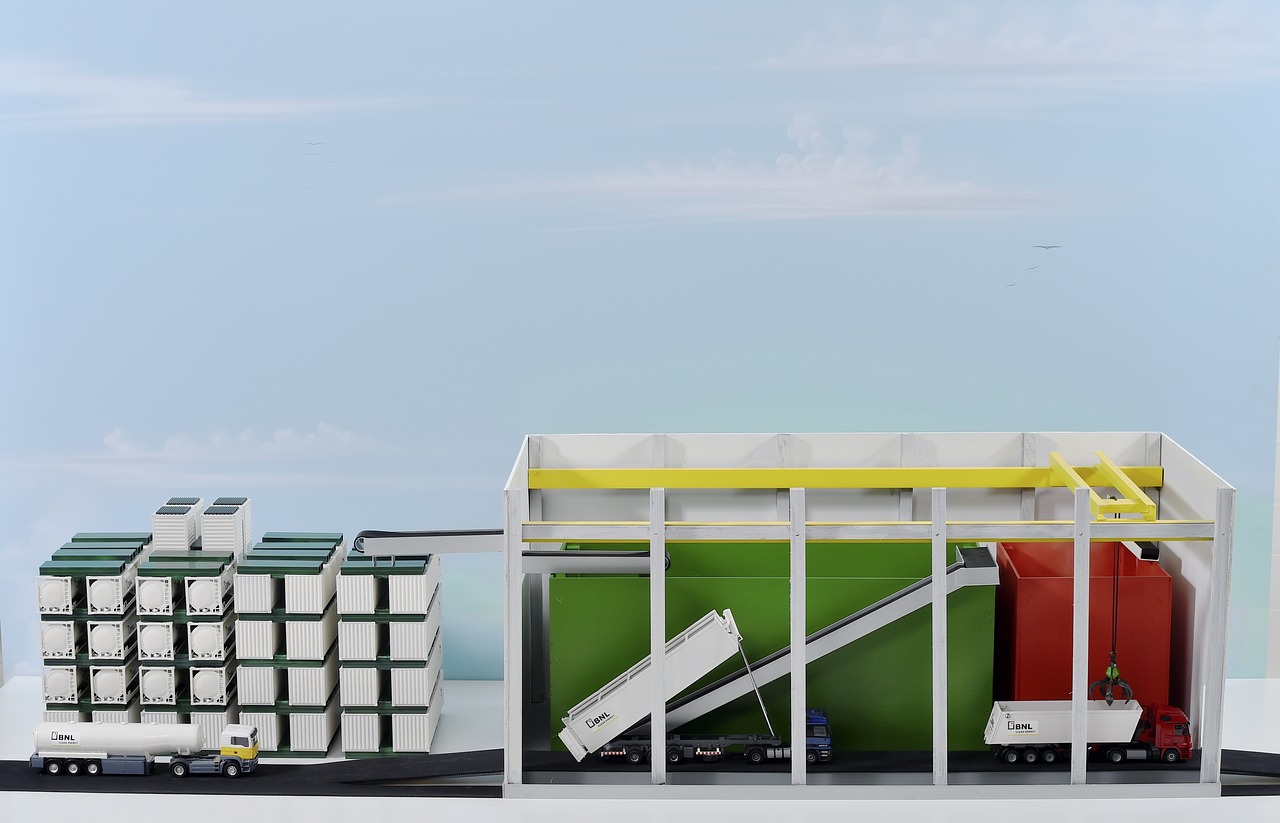
Challenges of Biofuels
Despite the promising advantages that biofuels bring to the table, they are not without their significant challenges. As the world shifts towards renewable energy sources, it’s vital to scrutinize the hurdles that could hinder the widespread adoption of biofuels. One of the most pressing issues is the competition for land. As more farmers are encouraged to grow crops for biofuel production, the question arises: what happens to food security? The land that could be used to cultivate essential food crops is increasingly being diverted to biofuel crops, which raises ethical concerns and could lead to higher food prices.
Moreover, the technological limitations surrounding biofuel production cannot be overlooked. While advancements have been made, many biofuels still rely on traditional methods that are not as efficient or scalable as needed. In fact, the current technologies used for biofuel production often require significant energy input, which can negate some of the environmental benefits they promise. This brings us to the heart of the matter: we need innovative solutions to enhance the efficiency of biofuels and make them a more viable alternative to fossil fuels.
Another challenge lies in the economic viability of biofuels. While they can stimulate local economies and create jobs, the initial investment for biofuel production facilities can be quite high. This can deter potential investors and slow down the growth of the biofuel industry. Furthermore, fluctuations in oil prices can make biofuels less attractive economically, as they often compete with cheaper fossil fuels. The question then becomes: can biofuels maintain their foothold in a market that is so heavily influenced by the price of oil?
To better understand these challenges, let’s delve into some of the key issues:
- Land Use: The competition for agricultural land between food and fuel can lead to food shortages.
- Technological Barriers: Current technologies may not be efficient enough to make biofuels a mainstream energy source.
- Economic Factors: High production costs and fluctuating oil prices can impact the viability of biofuels.
As we navigate the complexities of biofuels, it’s essential to address these challenges head-on. The future of renewable energy may depend on our ability to innovate and find solutions that balance the needs of both food production and biofuel production. It’s a delicate dance, but with the right strategies and technologies, we can hopefully overcome these obstacles and pave the way for a more sustainable energy future.
Q: What are biofuels?
A: Biofuels are renewable energy sources derived from organic materials, such as plants and animal waste, which can be used as an alternative to fossil fuels.
Q: What are the main challenges associated with biofuels?
A: The main challenges include competition for land between food and fuel crops, technological limitations in production efficiency, and economic factors such as high production costs.
Q: Can biofuels help reduce greenhouse gas emissions?
A: Yes, biofuels have the potential to reduce greenhouse gas emissions compared to traditional fossil fuels, but their overall impact depends on various factors, including production methods and land use.
Q: What innovations are needed for biofuels to become more viable?
A: Innovations in production technology, sustainable agricultural practices, and efficient use of resources are crucial for improving the viability of biofuels.

Food vs. Fuel Debate
The is a hot topic in the world of renewable energy, and it raises some serious questions about our priorities as a society. On one hand, we have the urgent need to transition away from fossil fuels to combat climate change, and on the other hand, there's the pressing issue of food security for millions of people around the globe. It's like being caught between a rock and a hard place, right? So, how do we strike a balance between these two critical needs?
To put it simply, the challenge lies in the competition for land. When we allocate agricultural land to grow biofuel crops, we are potentially diverting resources away from food production. This can lead to a scenario where food prices rise, and vulnerable populations may struggle to access basic nutrition. In regions where food insecurity is already a concern, the implications can be dire. For instance, when corn is used to produce ethanol, it might mean less corn available for food, which can drive up prices not just locally, but globally.
One way to visualize this conflict is through the concept of trade-offs. Imagine a seesaw: on one side, you have biofuels that promise cleaner energy and reduced greenhouse gas emissions, while on the other side, you have food crops that sustain our population. The question becomes: how do we keep that seesaw balanced? The answer may lie in innovative agricultural practices and the development of biofuels that do not rely on traditional food crops. For example, using waste materials or non-food crops can help alleviate this pressure.
Moreover, the debate is not just about land but also about the technological advancements that can make biofuel production more efficient. If we can develop biofuels from sources that do not compete with food supply—like algae or agricultural waste—we might just find a harmonious solution. This is where the role of research and development becomes crucial. We need to invest in technologies that can convert non-food biomass into viable biofuels, allowing us to produce energy without compromising food security.
In conclusion, the Food vs. Fuel Debate is complex and multifaceted, involving ethical considerations, economic implications, and the need for sustainable practices. As we move forward, it’s essential to engage in open discussions and consider all perspectives to ensure that our quest for renewable energy does not come at the expense of those who need food the most. After all, finding a sustainable path forward is not just about energy; it’s about ensuring a healthy planet and a nourished population.
- What are biofuels? Biofuels are renewable energy sources derived from organic materials, such as plants and animal waste, used as alternatives to fossil fuels.
- How do biofuels impact food prices? The production of biofuels can lead to increased competition for agricultural land, which may drive up food prices, especially in regions where food security is already a concern.
- Are there sustainable options for biofuel production? Yes, utilizing waste materials, non-food crops, and innovative agricultural practices can help produce biofuels without compromising food supply.
- What role does technology play in biofuel production? Advancements in technology are crucial for improving the efficiency and scalability of biofuel production, helping to reduce competition with food crops.
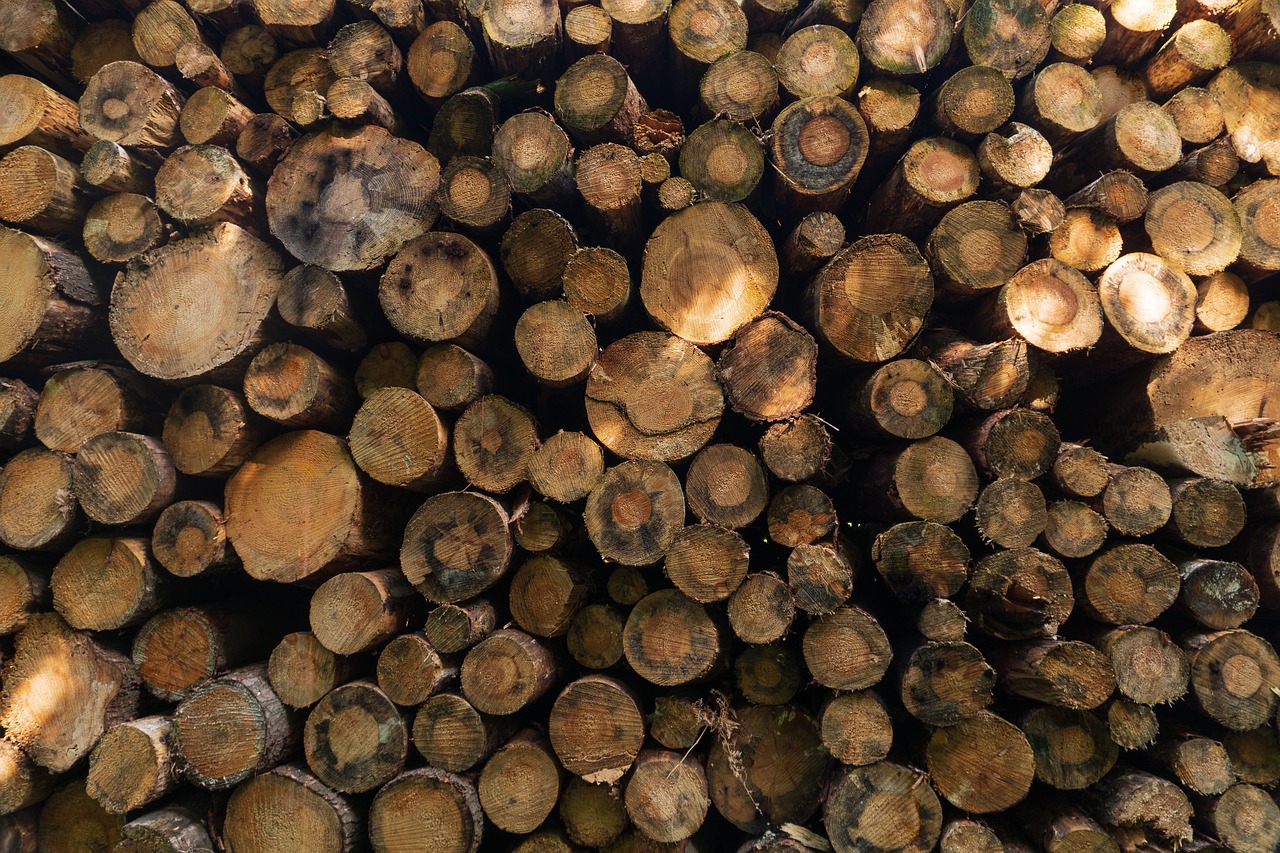
Technological Limitations
When we dive into the world of biofuels, we can't ignore the that pose significant hurdles to their adoption and scalability. While biofuels hold immense promise as a cleaner alternative to fossil fuels, the current state of technology presents several challenges that need to be addressed. For instance, the processes involved in converting biomass into fuel are often complex and require advanced engineering solutions. Many biofuel production methods are still in the experimental phase, which means they are not yet ready for widespread commercial use.
One of the major technological barriers is the efficiency of conversion processes. Traditional methods, such as fermentation and transesterification, can yield varying results based on the type of biomass used. This inconsistency can lead to unpredictable costs and supply issues. Additionally, the energy input required to process raw materials into usable fuel often negates some of the environmental benefits biofuels are supposed to provide. In other words, if we need to burn fossil fuels to produce biofuels, are we really making progress?
Moreover, the scalability of biofuel production remains a pressing concern. While small-scale biofuel operations can be quite successful, scaling these processes to meet global energy demands presents a different set of challenges. For example, the infrastructure needed for large-scale biofuel production is still underdeveloped in many parts of the world. This includes everything from processing facilities to distribution networks, which are crucial for getting biofuels to consumers.
Another critical factor is the development of advanced biofuels. Current biofuel technologies primarily focus on first-generation biofuels, which are made from food crops like corn and sugarcane. However, there is a growing need to shift toward second and third-generation biofuels that utilize non-food biomass, such as agricultural waste, algae, and even municipal waste. These advanced biofuels have the potential to reduce competition with food production, but the technology to efficiently convert these materials into fuel is still in its infancy.
To illustrate the differences in biofuel types and their respective technological challenges, consider the following table:
| Biofuel Type | Source Material | Technological Challenge |
|---|---|---|
| First-Generation | Crops (e.g., corn, sugarcane) | Food vs. Fuel competition |
| Second-Generation | Non-food crops (e.g., switchgrass) | Efficient conversion processes |
| Third-Generation | Algae and waste materials | Scalability and cost-effectiveness |
In conclusion, while biofuels represent a promising avenue for sustainable energy, the must be addressed to fully realize their potential. Ongoing research and innovation are crucial to overcoming these challenges. As we look to the future, the development of more efficient and scalable biofuel technologies will be essential in the quest for a cleaner, more sustainable energy landscape.
- What are biofuels? Biofuels are renewable energy sources derived from organic materials, offering alternatives to fossil fuels.
- How do biofuels reduce greenhouse gas emissions? Biofuels can lower carbon emissions by replacing fossil fuels, which release significant amounts of carbon dioxide when burned.
- What are the main challenges facing biofuel technology? Major challenges include production efficiency, scalability, and the need for advanced biofuel development.
- Are biofuels competing with food production? Yes, the competition for land between food crops and biofuel crops raises ethical concerns regarding food security.
Frequently Asked Questions
- What are biofuels and how are they produced?
Biofuels are renewable energy sources made from organic materials, such as plants and animal waste. They can be produced through various processes, including fermentation, transesterification, and anaerobic digestion. These methods convert the biomass into usable fuels, like biodiesel and bioethanol, which can replace traditional fossil fuels in vehicles and power generation.
- What are the environmental benefits of using biofuels?
Biofuels can significantly reduce greenhouse gas emissions, helping to combat climate change. They often produce lower carbon emissions compared to fossil fuels, which contributes to a smaller overall carbon footprint. Additionally, biofuels can improve air quality by reducing harmful pollutants, making them a cleaner alternative for the environment.
- How do biofuels impact food security?
The production of biofuels raises concerns about the competition for land between food crops and biofuel crops. This "food vs. fuel" debate highlights the ethical implications of prioritizing biofuel production over food security, especially in regions where hunger and poverty are prevalent. Balancing these needs is crucial for sustainable development.
- What are the economic advantages of biofuels?
Biofuels can stimulate local economies by creating jobs in agriculture, processing, and distribution. They also promote energy independence by reducing reliance on imported fossil fuels. Investing in biofuel technology can lead to innovation and growth in the renewable energy sector, benefiting communities and economies alike.
- What challenges do biofuels face for widespread adoption?
Despite their benefits, biofuels encounter several challenges, including land use conflicts, technological limitations, and the need for sustainable farming practices. Advancements in biofuel technology are essential to increase efficiency and scalability while addressing concerns about environmental and social impacts.
- How can sustainable farming practices enhance biofuel production?
Implementing sustainable agricultural methods, such as crop rotation, organic farming, and agroforestry, can enhance the environmental benefits of biofuel production. These practices support ecosystem health, improve soil quality, and reduce the need for chemical fertilizers, ultimately leading to a more sustainable biofuel industry.

